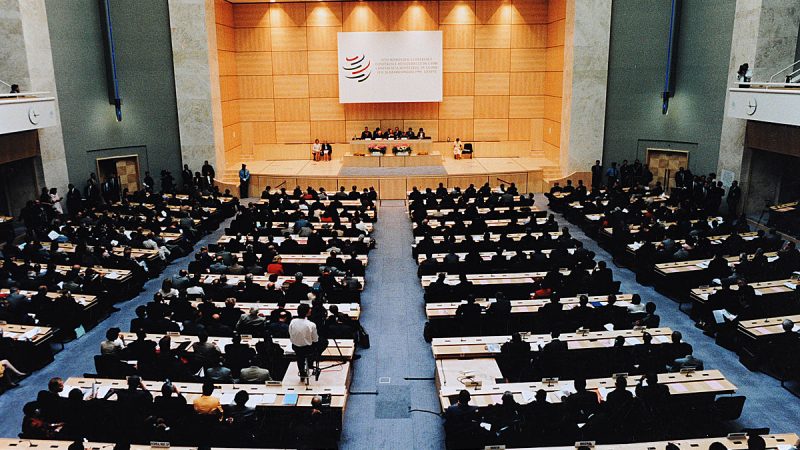To ensure global access to the new Covid-19 vaccines, we need to challenge Big Pharma’s monopolies, argues Lib Dem spokesperson Baroness Sheehan.

Today governments are meeting again at the World Trade Organisation (WTO) to discuss the landmark proposal to waive the monopolies that pharmaceutical companies hold on Covid-19 vaccines, tests and treatments to improve global access.
The proposal is now supported by 100 countries. But with rich countries’ opposition, consensus in the WTO has still not been reached. To explain why it’s opposed to the waiver, the UK Government has previously insinuated that Big Pharma monopoly barriers to accessing Covid-19 tools are ‘hypothetical’.
This is incredibly worrying, as the evidence around how countries have been struggling to access health tools in the Covid-19 response is growing.
Global South locked out
We’ve heard about South Africa facing challenges accessing adequate testing materials to scale up Covid-19 testing due to intellectual property monopolies on some machines and reagents. Italian hospitals faced shortages of ventilator valves and were then threatened with law suits when they attempted to 3d print them.
Even here in the UK during the autumn, a potential Covid-19 treatment was rationed due to inadequate supply. There is then the latest analysis from the People’s Vaccine that calculates that nearly 70 lower-income countries will only be able to vaccinate one in 10 people because the majority of supply has been promised to richer countries.
All of these issues stem from the rules within the World Trade Organisation’s Agreement on Trade Related Aspects of Intellectual Property Rights (known as the TRIPS Agreement) which dictates that pharmaceutical companies can hold a 20 year monopoly on what they produce. The logic is that it allows the company to recoup on the investment they’ve made making the product and is therefore an incentive to innovate.
Monopoly rules
But the result of allowing them to hold this monopoly means they are the sole producer. In the absence of competition, this monopoly power leads to supply restrictions, high prices and limits follow-on research. Furthermore this logic that intellectual property rights drive innovation just doesn’t stand up when considering the production of COVID-19 tools has been a team effort involving huge investment and risk from the public. Over $12 billion of public money has been poured into the 6 leading vaccines alone and thousands of people are risking their bodies in clinical trials for potential vaccines and therapies.
Demand for Covid-19 tools is global and far beyond the manufacturing capacity of a handful of Big Pharma companies. There is manufacturing capacity to produce Covid-19 tools in low and middle income countries but intellectual property barriers stand in their way. We need pharmaceutical companies to give up their monopolies, to share their intellectual property rights and to share the knowledge of how these tools can be produced. This will not only speed up research and development and maximise manufacturing capacity to avoid rationing; it will also make products more affordable by enabling generic competition to help drive down prices.
Not only is this essential for improving the Covid-19 response in low and middle income countries, it’s important for the response in the UK too. The virus uncontrolled anywhere is the virus uncontrolled everywhere. Leaving large parts of the world without a vaccine allows the virus to mutate making the effective vaccines of today, useless tomorrow.
Equal access
The pharma lobby is a powerful machine and we know from past reports that they have preferential access to government. The fact that the UK representative for the WTO tweeted that he met with pharma the day before a key WTO meeting, is a case in point. It is therefore all the more important that a counter voice is heard. The UK Government has made commitments to equitable access to medicines in the past, most notably through its support for the International Covenant on Economic, Social and Cultural Rights, and must be held accountable to these pledges.
UK legislation is currently in the process of being agreed around Trade agreements and medicines. Both of these processes will have a big impact on the UK Government’s ability to safeguard access to affordable medicines both at home and abroad. Alongside the waiver on Covid-19 pharma monopolies, this legislation also provides us with a unique opportunity to reinforce the UK’s commitments to equitable access to medicines. Key amendments I am putting forward set out the legal right of all countries to utilise the public safeguards within the TRIPS Agreement that allow governments to override patent monopolies if public health is at stake.
Human rights must take precedence over intellectual property rights at any time. With a global pandemic underway, we can’t leave global public health to the whims of market forces. With the UK Government jumping ahead of many countries in the Covid-19 response due to their preferential access to vaccines, we should now be doing all we can to make sure the rest of the world can do the same.
Baroness Sheehan is the Liberal Democrats’ Lords Spokesperson for International Development.
Pictured: A WTO conference (Creative Commons)
To reach hundreds of thousands of new readers we need to grow our donor base substantially.
That's why in 2024, we are seeking to generate 150 additional regular donors to support Left Foot Forward's work.
We still need another 117 people to donate to hit the target. You can help. Donate today.



